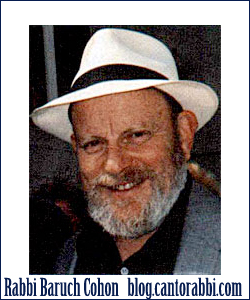A MESSAGE FROM MOSES – Deut.3:23—7:11 – Va-etkhanan – by Rabbi Baruch Cohon
This week’s reading is long, starting with Moses recalling praying to be permitted to enter the Promised Land, being refused, accepting his fate, and then turning to remind his people why they are called a “wise and understanding nation,” namely, because of the laws they follow, the Torah they received at Sinai. Reviewing their progress from slavery in Egypt to nationhood, Moses cautions them to keep the Law.
Then he attends to a matter of administration. He designates three Cities of Refuge located east of the Jordan, where a fugitive killer can go and be safe – if the killing was accidental and not premeditated. This institution is covered more completely elsewhere.
Now Moses launches into his second oration to his people. Yes, it is long. Only part of it is read this week. Long, but worth reading. Both dramatic and basic to our understanding of Judaism, this section of Moses’ oration includes:
(1) a repetition of the Ten Commandments, with some brief comments added,
(2) Sh’ma – “Hear O Israel,” the central declaration of Jewish faith,
(3) the duty to remember the Exodus from Egypt, and
(4) a warning not to be tempted by mixed marriage and idolatry.
Pitfalls await the conquering Israelites, and Moses describes them vividly. They will take over great cities that they did not build. Fine houses full of good things they did not produce. Maybe those seven nations they are replacing knew something they didn’t know? Maybe the other nations had a better way of life?
Forget it, he tells them: “Not because you outnumbered all the other nations did G-d value you and choose you. You are the smallest of the nations. Because G-d loved you, that’s why He rescued you from Egypt.”
Now we might well ask: Why are Moses’ heirs still here? Not because there were more Jews in the world than there were Egyptians or Greeks or Romans or Huns or Turks. Still a global minority, still sometimes tripped up by idolatries from Communism to Scientology, but still able to listen to a message from Moses.
If you read the whole Sedrah every week, more power to you. And if not, take the time to read this one. And since this week included the Ninth of Av when we fast to mourn the destruction of the Temple twice on the same date, take a look at the beautiful Haftorah, the prophetic passage that gives its name to this Sabbath – Shabat Nachmu – the Sabbath of Comfort, as Isaiah sings: “Comfort, comfort my people, says your G-d.”
Wishing you a week of strength and comfort, Shabat Shalom.
You can contact Rabbi Baruch Cohon for further discussion and/or comments at: baruch.c.2011@gmail.com


